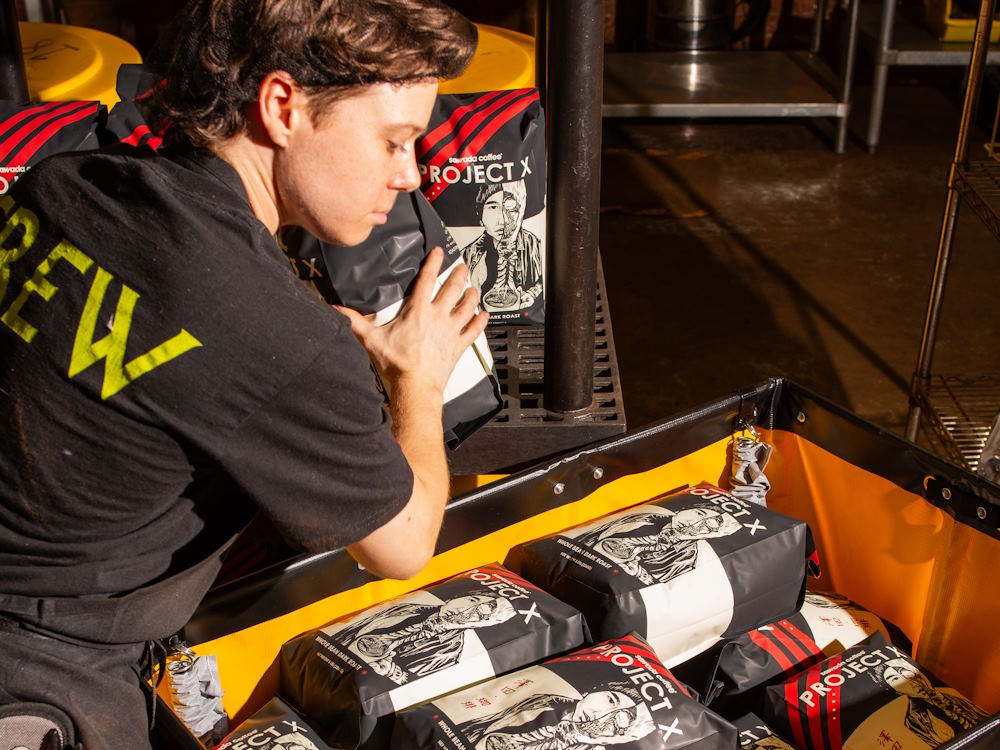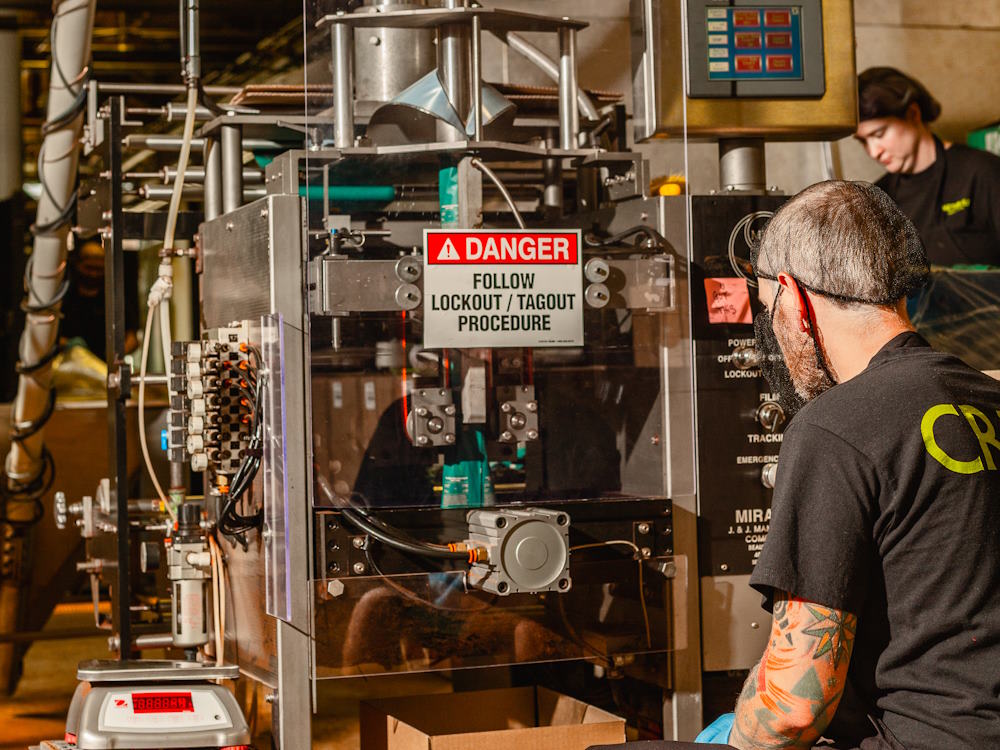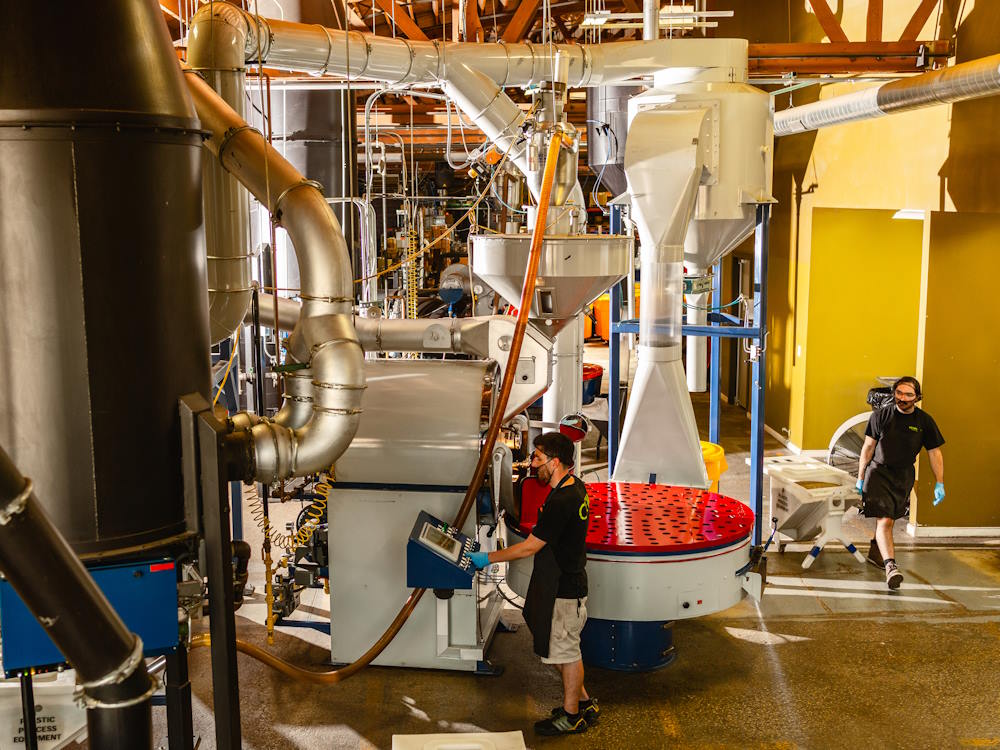Historically, working in coffee wasn’t seen as a “viable” career option, let alone one with opportunities for growth and advancement. Luckily, this mindset has shifted over the last few decades, with both coffee companies and their employees prioritising career development.
As part of this, more coffee professionals have a desire to continually develop their skills and knowledge. Managerial roles, in particular, are in high demand as more café and roastery staff look to advance their careers.
So how can baristas and roasters climb the coffee job ladder to the management level? And what skills and knowledge are necessary to succeed in these higher-level positions?
I spoke to Ryan Lefler, Vice President of Operations at Metropolis Coffee Company, for his insight on kickstarting a thriving managerial coffee career.
You may also like our article on why developing skills is so important for baristas to progress in their career.
Why managerial roles are often a natural career progression in coffee
The coffee industry hasn’t always had the best track record for encouraging upward career trajectories. In 2023, the US hospitality industry had the highest average staff turnover rate of all sectors in the country, at a staggering 79%.
But coffee shop and roastery staff are now more serious than ever about career progression, continually honing their skills and expertise to advance their careers. As a result, more coffee businesses have invested in training and professional development for their staff, and long-term career opportunities are becoming more common.
Managerial roles have become a popular way to grow a coffee career and avoid stagnating in one role or company. Industry professionals often acquire the skills and knowledge needed to manage a team after working in the industry for years. For many, moving into a managerial role is the next step if they want to stay within the same company or progress in their careers.
“As with any industry, managerial positions are a natural next step for people who are passionate and show strong job performance,” says Ryan. “The coffee industry, in particular, tends to have some niche skillsets that encourage companies to promote from within.”

Acquiring managerial skills in the coffee industry
Managerial roles are multi-faceted, so having a mix of soft and hard skills is essential.
“Leadership skills are the most important, as the next step is about getting the most out of a team,” Ryan says. “Creating a culture of excellence goes a long way.”
Coffee managers must champion customer service. They need stellar people skills to relate to both staff and customers and create exceptional guest experiences. Strong communication skills are necessary for managers to clearly convey roles and responsibilities to their team, as well as to key suppliers and partners.
“Problem-solving, multitasking, and attention to detail are also important soft skills,” Ryan adds.
Organisation plays a major role, too. Coffee shop and roastery managers need to keep operations running smoothly and avoid any disruptions. For example, missing an inventory order could result in costly delays or expensive expedited shipping.
A higher level of awareness of overall business operations is crucial to ensuring the coffee shop or roastery is always operating at full capacity.
What about hard skills?
While soft skills are important, managers must also have a particular set of hard skills for a successful coffee career.
“Hard skills depend on the nature of the position, but basic computer skills and coffee knowledge are always relevant,” Ryan explains.
For example, managers must be proficient in all the necessary hardware and software. Coffee shop managers should be comfortable using tools like point-of-sale (POS) systems and scheduling platforms. Additionally, roastery managers need to be able to use roasting software and inventory management systems.
Even though managers typically operate at a higher level, having solid coffee knowledge and more basic skills – including dialling in espresso, preparing pour overs, and pouring latte art – is non-negotiable. This way, managers understand the high standards that need to be upheld so they can train staff properly.
Additionally, some basic bookkeeping skills can be useful if managers are responsible for reporting on store performance to senior management.

What do different coffee manager roles involve?
The day-to-day duties of a coffee shop or roastery manager will vary depending on the size of the business. However, some responsibilities are common to most managerial roles.
Many are in charge of hiring and training a strong team, as well as scheduling to ensure the café or roastery is adequately staffed. They’re also tasked with maintaining the facility and equipment, including espresso machines, grinders, and roasters.
Another key responsibility is managing inventory and purchasing, including keeping the café or roastery well-stocked so operations run smoothly. Additionally, managers are in charge of communicating with key supply chain members to keep track of deliveries of roasted or green coffee, takeaway packaging, and a range of different milks.
While many managerial tasks overlap, some responsibilities are unique to the type of coffee business. For example, Ryan explains that coffee shop managers are responsible for ensuring quality customer service, implementing efficient workflow, and developing menus.
“Roastery managerial roles, however, tend to be more specialised, and depending on the size of operations, you may be expected to wear several different hats,” he says. “Common areas include roasting, sourcing green coffee, production (packaging and distribution), sales, customer service, and finance.”
In smaller roasteries, a few people might oversee all areas of the business, making the role more multifaceted. For larger operations, each department will usually have its own dedicated manager.
“Each managerial role may require different technical skills, but leadership and fostering culture is a common thread,” Ryan tells me.

Tips for transitioning into a managerial career
Becoming a manager isn’t without challenges, but with the right preparation and determination, it can be a natural and successful next step.
“The best way to transition into a managerial role in a coffee company is to prove yourself in a more entry-level position while developing the skills it takes to get to the next level,” explains Ryan.
It is critical to consistently build on the skills and knowledge required for higher-level roles. For example, good preparation for a barista aspiring to become a manager would be developing an excellent bar workflow and learning how to optimise it.
“If you want to become a roasting manager, for example, learn how to be a great coffee roaster and work on developing skills like establishing roasting curves, data management, and understanding green coffee sourcing,” says Ryan.
Learning to communicate effectively with a wide range of people, from peers to superiors, is another excellent way to prepare for a coffee management career.
Baristas and roasters can also shadow their current managers to become more familiar with the day-to-day tasks involved, such as inventory management, menu development, and training.
“Technical skills are important, but it’s also critical to demonstrate a great attitude, show an eagerness to learn, be accountable, and gain the respect of the team,” Ryan adds.
Beyond on-the-job learning and mentorship, coffee professionals can also invest in external training resources to expand their business and operations knowledge.

Where to find managerial coffee jobs
There are several ways for coffee shop and roastery staff to find management opportunities. The first and most obvious is to work your way up within your current company.
Ryan tells me Metropolis Coffee Company has a culture of promoting from within. He says that 90% of their executive team started in entry-level positions and moved up the career ladder. For example, Ryan started filling bags on Metropolis’ production line six years ago and is now the VP of Operations.
“We firmly believe in taking the time to develop people who are a great cultural fit,” he explains. “It rewards the hard work of our great staff and provides an incentive to stick around and grow with our company.”
For those looking to advance in their current company, he suggests talking with line managers and executives to showcase a desire to develop a career in coffee.
“Express your interests to someone in a higher-level position and ask them to teach you more,” he adds. “A mentor can go a long way.”
Additional resources
Networking and attending industry events, like barista and roasting competitions, are excellent ways to explore external roles. Connecting with fellow coffee professionals on social media can also open up potential roastery and coffee shop jobs.
Additionally, staff can use platforms like PDG Jobs to find new managerial roles and other coffee jobs. The platform includes listings from some of the most well-known companies in the specialty coffee industry and is regularly updated with a variety of job opportunities for baristas, roasters, and more.

Starting a managerial job is a common career progression path for many seasoned coffee shop and roastery staff.
However, making that leap requires a solid foundation in business and operations, along with a combination of hard and soft skills. As long as coffee professionals invest in knowledge and skill development, they’ll likely have a long and rewarding coffee career ahead of them.
Looking for new positions in the coffee industry? Check out PDG Jobs here.
Photo credits: Metropolis Coffee Company
Perfect Daily Grind
Want to read more articles like this? Sign up for our newsletter!
The post How to kickstart a managerial career in coffee appeared first on Perfect Daily Grind.

